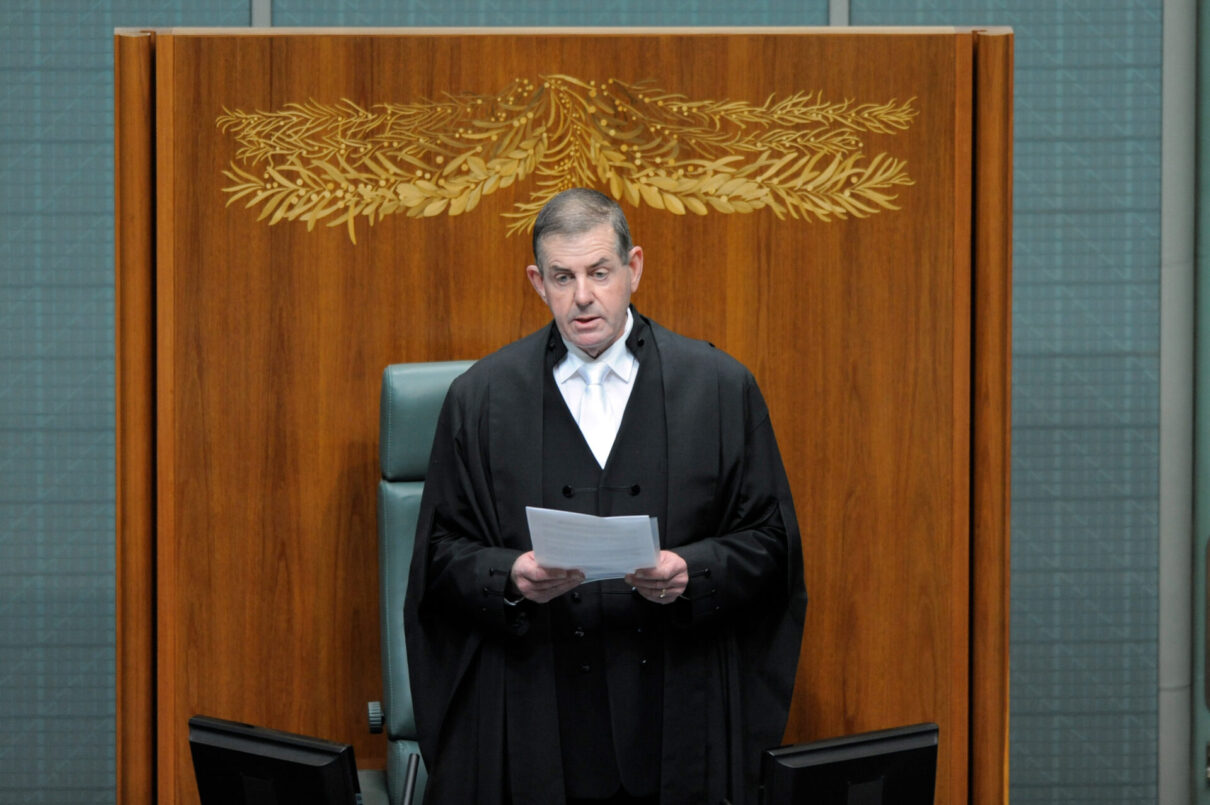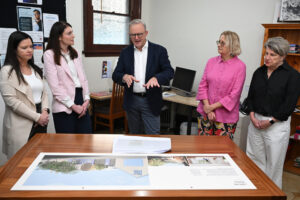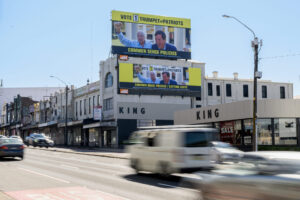Election entrée: Speakers from other parties

Share
Every Australian parliament – federal, state and territory – has had a speaker from a party other than the one in government at some point.
ABC News reports that both the Government and Opposition have sounded out independent MP Andrew Wilkie and Centre Alliance MP Rebekha Sharkie as potential speakers in the next parliament.
If it is a minority government, losing a government MP to the speaker position could hurt – giving a crossbencher the role helps the government numbers.
But it would also be consistent with longstanding practice in the UK, and more recently in South Australia.
Every Australian parliament – federal, state and territory – has had a speaker from a party other than the one in government at some point.
The speaker is responsible for keeping order in the lower house and defending the house’s rights and privileges. They also share responsibility for the security, upkeep and functioning of the parliament.
The first speaker of the House of Representatives, Sir Frederick Holder, resigned his party membership upon election to the role in 1901, following the British tradition of an independent speakership.
After he died in office, that tradition was abandoned until 2011 when the Gillard government elected Coalition MP Peter Slipper to the speaker’s chair.
Intending to revive the independent tradition, he resigned his party membership – but was replaced as speaker by Labor’s Anna Burke a year later.
Independent and minor party speakers are more common in the states and territories. The ACT’s first speaker was from the “No Self Government” party, and Shane Rattenbury became the world’s first speaker from a green party in 2008. In South Australia the constitution was changed in 2021 to require the speaker to be independent.
Just as the House has a speaker and deputy speaker, the Senate has a president and deputy president.
Normally, the deputy president is chosen from and by the Opposition but, in 1996, Prime Minister John Howard offered the position to Senator Mal Colston, who was not favoured by the Labor Party for the role, as an inducement for him to defect from Labor. Senator Colston became the first and so far the only independent deputy president of the Senate.
Sometimes speakers are chosen from the opposition party, such as the incumbent Mark Parton in the ACT, a Liberal MLA in a territory with a Labor government. After the 2018 election in Tasmania, the Liberal Government’s preferred choice for speaker was defeated by another Liberal, Sue Hickey, with support from the opposition.
Since the speaker makes a variety of decisions on how the parliament conducts its business, having them not be aligned with the government can make things fairer for the opposition and crossbench.
Between the Lines Newsletter
The biggest stories and the best analysis from the team at the Australia Institute, delivered to your inbox every fortnight.
You might also like
Election entrée: think three-year terms are too short? Spare a thought for generations past.
Complaints about the brevity of three-year parliamentary terms are common in Australia.
Australia’s gun laws aren’t as strong as you think
Nearly three decades after the Port Arthur massacre, there are more guns than ever before in Australia and there is still no national firearms register.
Election entrée: Dark money and your money pay for most of the political ads you’re seeing
At this stage of the election, you have no doubt seen plenty of political ads.



